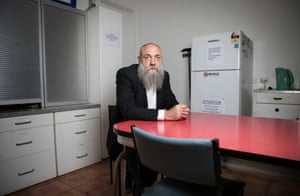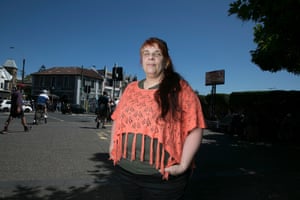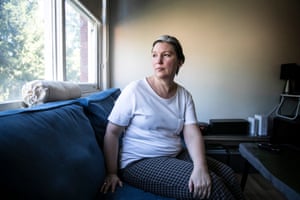A Senate inquiry into Newstart heard first-hand accounts of what life is like for some of Australia’s most vulnerable people
Sitting in a nondescript conference centre in Launceston, Deborah asked the senators in front of her to be patient.
“You’ll have to excuse me,” she told them, her voice trembling. “I’ve never done this before and I’m extremely nervous.”
It wasn’t just her first time. For more than a month, a Senate inquiry into the Newstart payment has heard first-hand accounts of what life is like for some of Australia’s poorest and most vulnerable people.
There have been references to self-harm and suicide. Anger and frustration. And stories of poverty, often set in train by bad luck – that and the low rate of their welfare payments, which is currently about $280 a week for a single person.
Deborah, 61, broke down as she told the inquiry about being made redundant three years ago. “I’ve worked a total of 35 years for Australia,” she said. “I’ve worked 30 of those 35 years in factory work, it’s physical labour.
“Frankly I’m scared about what’s going to happen to me when my car rego and my insurances come because there’s no savings. Am I going to be forced to live in my car?
“I feel like people like myself deserve to be treated with some respect for our contribution to our country. And to be able to keep some dignity.”

“You’ll have to excuse me,” she told them, her voice trembling. “I’ve never done this before and I’m extremely nervous.”
It wasn’t just her first time. For more than a month, a Senate inquiry into the Newstart payment has heard first-hand accounts of what life is like for some of Australia’s poorest and most vulnerable people.
There have been references to self-harm and suicide. Anger and frustration. And stories of poverty, often set in train by bad luck – that and the low rate of their welfare payments, which is currently about $280 a week for a single person.
Deborah, 61, broke down as she told the inquiry about being made redundant three years ago. “I’ve worked a total of 35 years for Australia,” she said. “I’ve worked 30 of those 35 years in factory work, it’s physical labour.
“Frankly I’m scared about what’s going to happen to me when my car rego and my insurances come because there’s no savings. Am I going to be forced to live in my car?
“I feel like people like myself deserve to be treated with some respect for our contribution to our country. And to be able to keep some dignity.”

Goldie rattled off the stats and facts at a hearing in Sydney. In one of the world’s wealthiest countries, she said, there are still 3 million people live in poverty, including 740,000 children; Newstart has not risen in real terms since 1994; just in Queensland, a $75 per week increase would inject about $748m into local economies across the state.
She listed a long list of supporters: the Business Council, unions, John Howard, Dick Smith, Deloitte. Another accounting giant, KPMG, told the inquiry last month it backed an increase of more than $90 a week, larger than the $75 advocated by Acoss and the Greens.
Scott Morrison has been unmoved. At hearings in West Perth, Launceston, Alice Springs, Adelaide, Launceston and Sydney, about 30 of Australia’s 700,000 Newstart recipients have popped their heads up above the parapet to convince Morrison he’s wrong, a brave decision in a political environment that has overseen the high-profile demonisation of individual welfare recipients who have dared to speak out.
Deborah said she felt “very sad” and “demeaned” by the prime minister. In Sydney, Karen, who has been on Newstart for 10 years, has battled homelessness, depression and anxiety.
To avoid sleeping on the streets, she tried living with a friend in rooming houses. It never worked out. There was violence and, at a rooming house, she lived with bed bugs.
“The owner of the boarding house refused to get the place fumigated because one of the residents loved collecting live bedbugs in a jar,” she told the inquiry in Sydney.
She is now in public housing. After her bills are paid, she’s left with $19 a day to live on.
“I have heard media comments that the social welfare system should be a trampoline and not a hammock that people get used to,” Karen said. “The current low rate of welfare allowance is not a trampoline for people to bounce back up. It is a poverty trap.”
Alyx, 56, has also been on Newstart for about a decade. She finds contract work from time to time, but it rarely lasts longer than three months.
Before she got into public housing, she was left with $11 a day to live on after she had paid the rent. That was factoring the rent assistance she got on top of Newstart.
“I have a bachelor of visual arts degree and an advanced diploma in business management,” she said. “I’m often told I’m overqualified.”
"People like myself deserve to be treated with some respect for our contribution to our country. And to be able to keep some dignity."
As another Newstart recipient, Brenton, 56, put it: “Entry-level positions are clogged with old people.”
They are part of the largest cohort of people on the dole: people over 55. The research shows women like Deborah and Alyx are increasingly likely to end up homeless. And government statistics analysed by Guardian Australia show the average time people can expect to spend on Newstart has increased almost every quarter September 2014.
“The heart of the debate about the low rate of Newstart is not just about the consequences that we’re all well aware of; it’s also about the root cause,” Brenton said.
He has postgraduate qualifications in the sciences and worked for two decades in IT. Brenton knows the history of the system that he says has kept him poverty. The Americans had “makers not takers” and the UK had “workers not shirkers”, he said.
In Australia, it’s “lifters not leaners”.
“The reason for the government’s resistance to raising Newstart is that that would undermine this whole central policy,” he argued.
Asked how he knew so much about the welfare system, Brenton replied: “You do, when your face is rubbed in it for years.”
Coalition senators have defended the government’s position by employing variation on a theme proffered by Morrison: that Labor was engaging in “unfunded empathy”.
“I think we can be quite clear on what [Labor’s policy] was. A review of a review, with no budgeting,” Liberal senator Hollie Hughes said. “I think the Australian public have spoken very clearly on that one.”
But there have been signs the government acknowledges something needs to change. Hughes, who has appeared for the Coalition with fellow Liberal Wendy Askew, has explored the idea that any additional support for people on Newstart could be “targeted”.
“A blanket cry for an increase in Newstart obviously has significant cost benefits that would impact them potentially in other programs, or have impacts elsewhere,” Hughes said.
“We need to be very mindful and apply some intellectual depth to this, to make sure we’re not just doing a blanket application where we can potentially better target what we’re looking at.”
During the campaign, Labor sought to imply that its Newstart review would have been like the Harmer process, which led to the largest real terms age pension increase in history. Now, it is explicitly campaigning for an increase, though it won’t name a figure.
“This inquiry represents a broader national discussion, about who we are as a nation – and whether we are truly prepared to measure ourselves by how we care for our most vulnerable citizens,” Linda Burney, Labor’s social services spokeswoman, said.

“It takes a lot of bravery to air your personal experiences when [you are] talking about feelings of worthlessness caused by the system,” the Greens senator says.
Siewert is not new to the Senate’s community affairs committee, which often deals with legislation impacting the most vulnerable people in Australia. There is genuine emotion in her voice after the final scheduled hearing of the year in Launceston.
“I think the evidence we just heard moved everybody in the room,” Siewert tells Guardian Australia.
Deborah said she agreed with another welfare recipient in Launceston, Patrick, when he said: “I feel like I’m being told that it would be better if I just wasn’t here. It would be easier for Australia if I just disappeared.”
There will more hearings next year before the committee hands down a report in March. At the end of her appearance, Deborah was asked what she hoped would come from the inquiry.
“What I would say to the government, ‘Use a bit of common sense, please,’” she said. “A bit of common sense, a bit of compassion … We don’t deserve to be thrown on the rubbish tip.
“Someone, please listen to us.”
Crisis support services can be reached 24 hours a day: Lifeline 13 11 14; Suicide Call Back Service 1300 659 467; Kids Helpline 1800 55 1800; MensLine Australia 1300 78 99 78

No comments:
Post a Comment